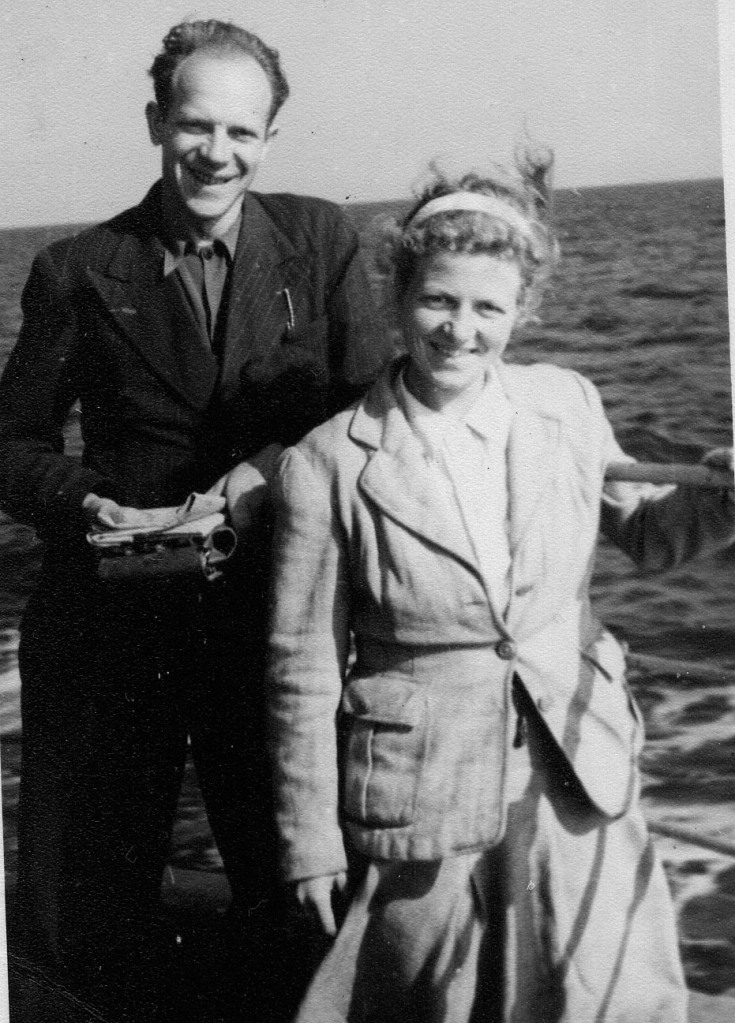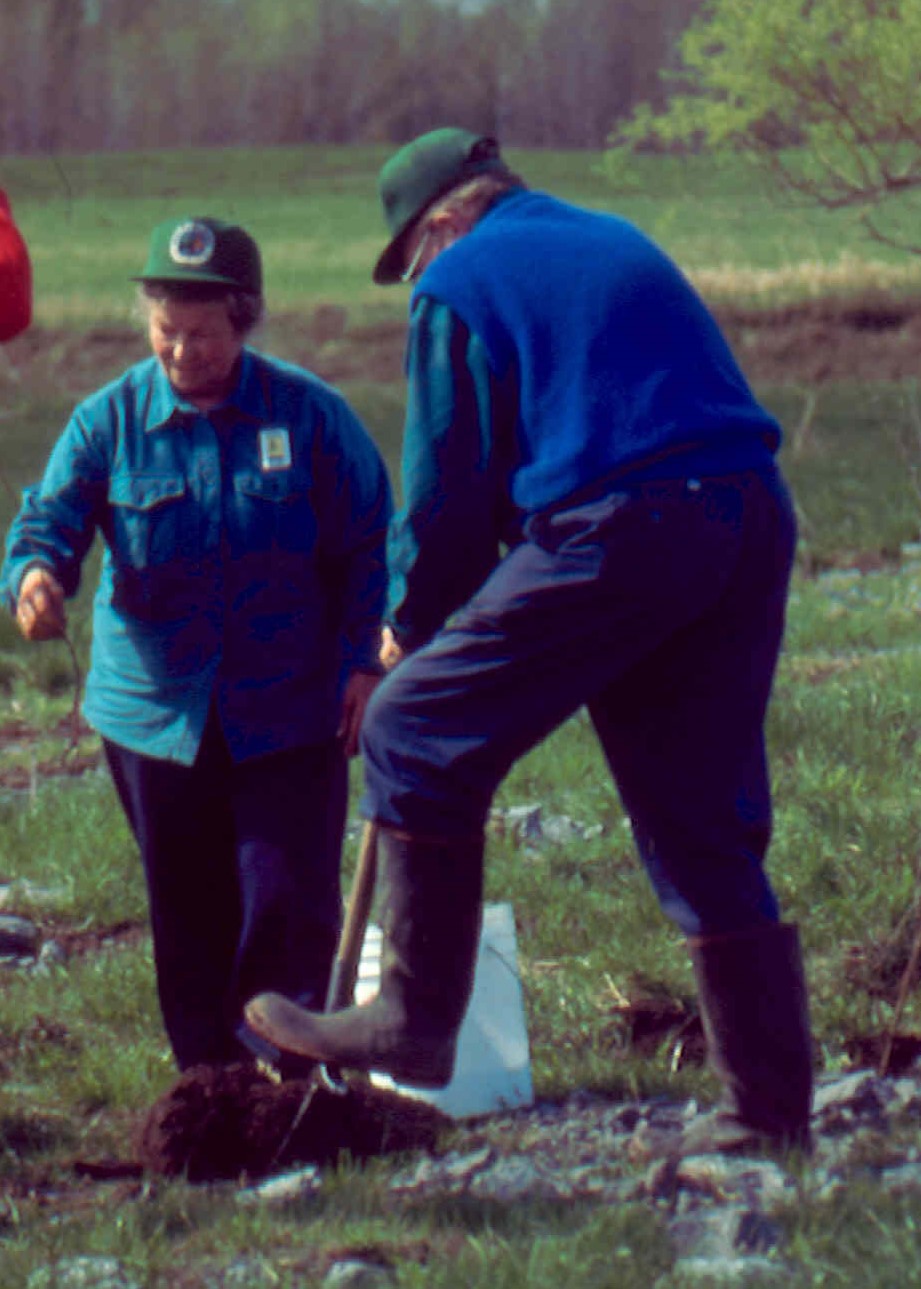In 2008, my husband Dan and I purchased part of the farm on which I spent most of my childhood. We built our “retirement” home and moved there in 2011. For me, it was a home coming.
Though many of my memories of the farm were of seemingly endless work and struggle associated with building a successful farming and market gardening operation, there was always that pull that kept me coming back. I was connected to the place.
When my family originally moved to the farm in 1953, I was a toddler exploring the outside world. With the move to the farm, much of my nurture came from the natural environment. As a child, when we weren’t working in the fields, I would explore the woodlands, meadows, streams, ponds, stone fences and hedgerows. I learned more from my interactions with the natural world than I ever did in school. School has its place, but no one should ever underestimate the value of experiential learning which provides the holistic experiences that impact a child at every level of their existence. This kind of learning is usually fun but also includes scrapes, cuts, bruises and insect bites. It deals with suffering and death while fostering connection and empathy. Experiential learning comes free of biases associated with religion, schooling and society in general. Here the teacher is Nature in all her forms and expressions and the student learns to be a quiet observer and participant.
Whether my parents understood this important impact they had on my life is irrelevant. They provided the space in which I found my sense of place. For that I am deeply grateful.
My father came to Canada with emotional baggage. As a child born in 1907 to German parents living in the Baltics, he experienced the hostility and hatred precipitated by the German invasion in 1914. His parents switched from speaking in German to only Russian and escaped to Moscow with their young family. Within a couple of years, the Russian Revolution threw them into new turmoil until they were able to return to Estonia after World War 1. Over the next 25 years, my father would lose all of his four siblings to infectious diseases. There were a few good years back in Estonia, but by 1939, as he and his young family were preparing to settle into their newly built home on about five acres of land outside Tallinn, Germany invaded Poland and all Baltic Germans were told, without explanation, to take the minimum of personal items and leave on ships the next day. Everything the family had built up in gardens, buildings etc. was confiscated. Their destination turned out to be the besieged Poland where Baltic Germans were accommodated by displacing locals. These were ugly times with horrors and injustices at every turn. Until the end of World War 2, there would be little stability and the only certainty was uncertainty.
My father never wanted to talk about his past. For me and my siblings, it was impossible to truly connect with him. Tender moments were few and far between.

Though my mother was completely open about her past, loss of family members during the war and loss of connection with family in Germany after 1952 was hard on her as well.
Whether or not either of my parents were profoundly haunted by the events of the past, they both clearly embraced the present. After their marriage in 1947 and futile attempts to make a living in Germany after the war, they made the decision to emigrate. They were open to any challenge that presented itself with my mother taking on the role of liaison and spokesperson who ensured things got done.
What attracted my parents to Canada was the opportunity to start a new life after the turmoil of war. They were fascinated by wilderness. The most attractive thing about the farm on Cold Creek near Frankford was its ruggedness, the hills, creek, and woodlands. The rolling landscape with stones littering the fields reminded my father of Estonia. It was the place the two called home for the last few decades of their lives. With all the blood, sweat and tears that would come after the move from Toronto, the farm brought them purpose and stability. Here, they demonstrated how to grow and raise one’s own food as well as manage woodlots for fuel and building materials.
The fields that were unfit for agriculture were reforested. Each year my parents ordered thousands of trees. As children, we were taken out of school for several days to help plant. The tiny bare root saplings we planted are now towering trees.
Our section of Cold Creek was cleaned up of fencing, garbage and debris and the eroding banks were stabilized with rocks and vegetation. My father regularly went out and took water tests of the creek to help in the monitoring of pollution from excess nutrients flushed in from upstream. Their work in helping to revitalize the natural environment went far beyond the farm.




In their old age, my parents continued planting trees every year, managing their woodlots and advocating for good stewardship.
From the beginning, the Quinte area had fascinated my parents. One of the most intriguing sites was the unusually large glacial erratic which sits on a parcel of land in Glen Miller about 10 km from the farm. When my father was 90 and my mother 75, they seized the opportunity to purchase the piece of land with the intention of making the Bleasdell Boulder readily accessible to the public. Over the next few years, they regularly worked with volunteers to put in an access trail and bridge to the boulder and to create educational materials. After my father passed away at age 95, my mother donated the land to Lower Trent Conservation to ensure it would always be there for the public.


My parents’ legacy was to rehabilitate the land and water to the best of their ability and demonstrate the impact one couple can have on the health of the environment and the wellbeing of their community.
As I work and walk on the farm, I am reminded daily of their presence in the evolving landscape and know that a seemingly small act can have a profound influence for generations to come.


Bea,
I truly enjoy every one of your insightful writings. The story of your parents and the work they did for these lands is incredible. Thank you so much for sharing.
Kind regards, Karina
LikeLike
Many thanks for taking the time to read my blog, Karina. Warm regards. Bea
LikeLike
Such a wonderful way to honor your parents…telling their story..
LikeLike
A captivating story, Bea, reminding me of my own heritage …..my parents having immigrated from Germany to Canada after the war as young teenagers with their parents and extended family – arriving in Montreal after a long voyage by ship, then travelling by train to Portage la Prairie, Manitoba, where the families began farming. From, Debbie & Greg, near Glenora Ferry, Picton (*you know the ones, who planted 300 Natural Themes Farms native periennials in May 2020! Which by the way, grew beautifully. Our plantings pale in comparison to that of what your parents accomplished, but we aim to uphold good forest management practices on our 27 acres.)
LikeLike
Thanks for sharing, Debbie. I’m sure there are so many stories like this. Canada has been a great destination for thousands of disaffected people who have enriched this country in a multitude of ways.
LikeLike
What a wonderful story! Your family has done and is still doing so much for our area. Thank you. 🙏❤️💕
LikeLike
Thank you for sharing your family history. I truly enjoyed reading it.
LikeLike
An amazing tribute and a wonderful example for all of us to follow .
LikeLike
Thanks for sharing about our parents….I to feel truly blessed every day by the legacy they left behind.
LikeLike
Thankyou for sharing this historic insightful legacy Maia. It is beautiful.
My Mom & Dad also immigrated to Canada in 1953. It amazes me that we also lived in Frankford at that time and eventually we met at a festival in Cobourg many years later.
Your place n surroundings are beautiful, as is your legacy to your Mom & Dad.
LikeLike
Thank you for sharing this story Bea. I found your blog recently, and am really enjoying slowly reading my way through the archives. We’re so grateful and happy to have your family as neighbours!
LikeLike
Thanks for taking the time to read the blog, Catherine.
LikeLiked by 1 person